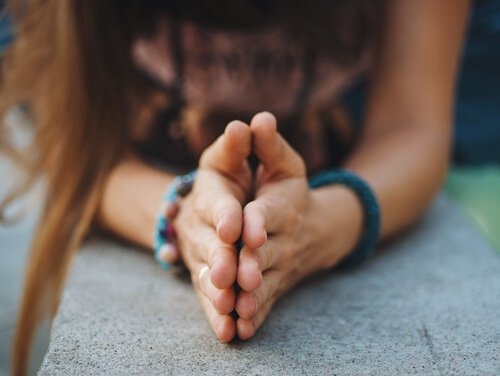The Best Way to Show Gratitude is to Value What You Have

You wake up every day and your life flows into a more or less organized routine. In many cases, your day to day goes by steeped in inertia and filled with problems and very short-term objectives you have to reach. In other words, you often don’t have a chance to adequately value what you have or to show gratitude sincerely.
You’re left with very little time to remember the past dreams you fulfilled. Instead, present obligations press you onward. You feel new frustrations over goals that you want to achieve. You yearn for a life far on the horizon or distant things you want to possess. The desire to improve your life and the lives of the people around you is always present inside of you. On the other hand, you hardly pay attention to all the goals you already achieved.
In those few hours of the day you have for yourself, you probably want to do some exercise, spend some time with friends, or relax. Thus, you may forget to value what you have although it’s a healthy exercise that deserves some time.
Several studies have shown that gratitude may result in many physical and psychological health benefits. Its effect is so great that we should take a few minutes a day to appreciate what we have.
How to value what you have
In our culture, people often associate gratitude with duty. Often times, this is a bothersome duty to someone who has done something for you. But gratitude is so much more than that. Gratitude is a mental state.
You can be thankful for the people who have helped you. You might even be thankful for those who have made your life difficult. After all, they put obstacles in your path that you were able to learn from. It’s good to be grateful for your strong points as well as your shortcomings. Be thankful for what you have and also grateful for what you’ve lost. The things you’ve lost gave you the opportunity to grow.
Let’s take a look at the benefits you can reap from cultivating gratitude in your life. We’ll also discover how you can develop it.

Gratitude and science
Different University of California and Mindfulness Awareness Research Center studies have reached some surprising conclusions regarding gratitude. They discovered that the act of developing this psychological state and feeling thankful frequently changes the brain’s molecular structure.
When you feel thankful, you activate the areas of the brain responsible for moral thinking. This also puts the brain’s emotional centers and reward systems into action. It activates the prefrontal cortex. This part of your brain is involved in complex cognitive behavior. It also participates in decision-making, social behavior, and personality expression processes. Another part of the brain that activates is the anterior cingulate cortex. This area is responsible for emotions and empathy.
How does this affect you?
The research teams subjected people to several tests. These tests involved expressing gratitude for several weeks. They discovered very positive results. This pattern of brain activation in the aforementioned areas was reflected by increases in the participants’ well-being levels on various metrics.
The subjects reported fewer health problems in general. They rated themselves as having lower anxiety and depression rates and affirmed that they had considerably higher productivity levels since they felt more refreshed due to better sleep. It seems that expressing gratitude is a practice that can help you feel healthier and happier.

Some ways to cultivate gratitude
Wake up every day thankful for what you have. Recognition is the foundation of gratitude. Many times we take things for granted.
It’s true that wanting more can motivate you, but this shouldn’t affect your appreciation for your current life. That’s the basis of your self-esteem. It’s where many of the emotions you feel spring from. Thus, gratitude is one of the most positive emotions we should develop.
A good exercise to stimulate gratitude is to write a letter or a message to someone who has helped you with something. It doesn’t matter if it’s been quite a long time since it happened. In addition, you can spend a few minutes a day thinking about what you’re thankful for. Another idea is to keep a diary where you can write down three things you’re thankful for. This can help you value what you have.
In conclusion, these are very easy ways to help you remember to value what you have when you feel frustrated by the thought of what you don’t.
This text is provided for informational purposes only and does not replace consultation with a professional. If in doubt, consult your specialist.








